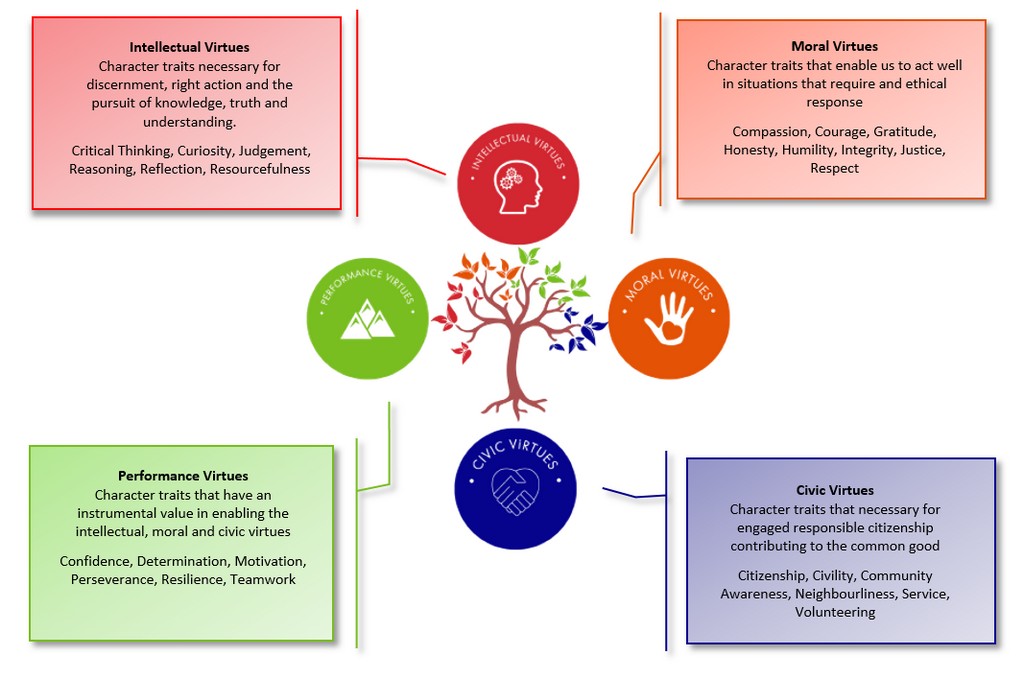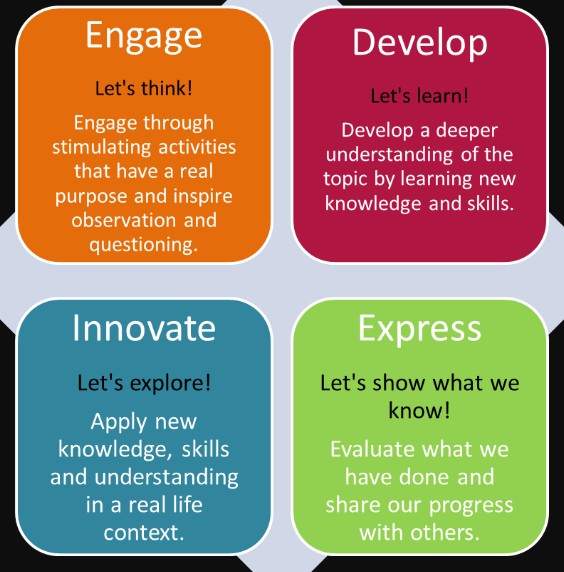Curriculum 360 - Inspiring Changemakers
Intent
We believe our curriculum will enable children to become inspiring change makers and global citizens of the future. We aim to inspire a quest for learning throughout life that is marked by enthusiasm and empathy, ensuring flourishing for all.
The four cornerstones of our curriculum are:
- Academic - Our curriculum will make sure children have a deep knowledge and understanding of history and heritage, can articulate how diverse the world is and have a respect for all cultures and beliefs. They will study significant individuals and events that have shaped our world in order to promote their aspirations and they will understand how to keep their bodies, minds and finances healthy.
- Innovation - Our curriculum is designed to ensure children become independent life-long learners. Children will learn about local, national and global issues, gaining an understanding of the world and how to function comfortably within it. Opportunities for children to develop skills associated with entrepreneurship, innovation and environmentalism will be seamlessly integrated within the curriculum.
- Community - Our curriculum aims to develop in children a strong sense of belonging and interconnectedness with the local, national and global community and a developing international mindedness. Children will learn to contribute positively to society through embedded learning about core values and character virtues.
- Character - We aim to develop well-rounded students with core character virtues who respond to challenges with optimism and an open mind, are confident in their own identities and understand how they learn. They make ethical decisions, join with others in celebrating our common humanity and are prepared to apply what they learn in the real-world.
Implementation
These four cornerstones are implemented throughout our curriculum. The curriculum is everything that children experience in and around the school, planned and incidental, caught, taught and sought.
The ‘caught’ refers to the culture of the school and the inspirational influence of a positive ethos.
The ‘taught’ refers to the educational experiences the school provides to equip children with the vocabulary, knowledge, understanding, skills and attributes they need to be successful and ready for the next stage in their learning.
The ‘sought’ refers to the opportunities that generate the formation of personal habits and character virtues.
Character Education
Character Education is taught and children have opportunities to practise their character virtues through all curriculum subjects, enrichment and wider experiences. Character education is woven throughout, enhancing the curriculum to ensure children have experiences beyond the classroom, and providing them with opportunities to apply their skills and knowledge in a wider context. Linking all the building blocks of character through four core character virtues.

Curriculum
At Woolacombe School we think it is essential that our pupils are taught an exciting and broad curriculum which inspires a love of learning. We use the planning and assessment support provided through Curriculum Maestro's Cornerstones as a tool to design, deliver and manage our curriculum. It enables us to deliver the curriculum through interesting topics. These topics use effective learning sequences which ensure progression and the sequential development of skills and knowledge.
Our curriculum is a two-year rolling programme, separated into the three learning stages - KS1, LKS2 and UKS2. Each unit of study is truly cross-curricular, which means that the children are totally immersed in the topic each term, gaining a breadth of knowledge. Each topic has geography or history as its driving subject, with companion projects for science and the arts. The curriculum objectives and skills are sequentially taught across the phases, meaning that the children build on strong foundations as they progress through the school. The topics are intentionally designed and chosen to support this
The approach is based on the following four key components of learning:

At the Engage stage, children:
- Gain memorable first-hand experiences, such as going on a visit or inviting a special visitor into school
- Get an exciting introduction to a new project
- Begin researching and setting enquiry questions
- Get lots of opportunities to make observations
- Develop spoken language skills
- Take part in sensory activities
- Have lots of fun to fully engage with their new project
At the Develop stage, children:
- Improve their knowledge and understanding of the topic
- Develop and practise their new skills
- Compose, make, do, build, investigate, explore, write for different purposes and read across the curriculum
- Research their own questions and those set by others
- Follow new pathways of enquiry based on their interests
- Complete home learning activities that support their learning
At the Innovate stage, children:
- Apply skills, knowledge and understanding in real-life contexts
- Lead their own learning through individual and group projects
- Solve real or imagined problems using everything they’ve learned
- Be inspired by imaginative and creative opportunities
- Revisit anything not fully grasped at the ‘Develop’ stage
At the Express stage, children:
- Become the performers, experts and informers through presenting their work in a variety of ways
- Share their achievements with parents, peers and the community
- Evaluate their own learning
- Link what they have learned to where they started
- Celebrate their achievements
Impact
-
Children will inspire change and be change makers.
- Children will develop practical wisdom; knowing the right action at the right time, becoming flourishing individuals who contribute towards a flourishing society.
- Children will develop character virtues that have far-reaching effects beyond the school gates, ensuring children become global citizens of the future.
We monitor and track the impact of our curriculum through:
- The knowledge and understanding the children retain over time leading to the standards that the children achieve by the end of each year.
- The quality of work, progression of skills, depth of knowledge and understanding presented in the children’s books, classroom displays, learning journeys, exhibitions and social media feeds.
- Attainment and progress including national tests and standardised assessments.
- The development of children’s oracy - their ability to articulate their learning.
